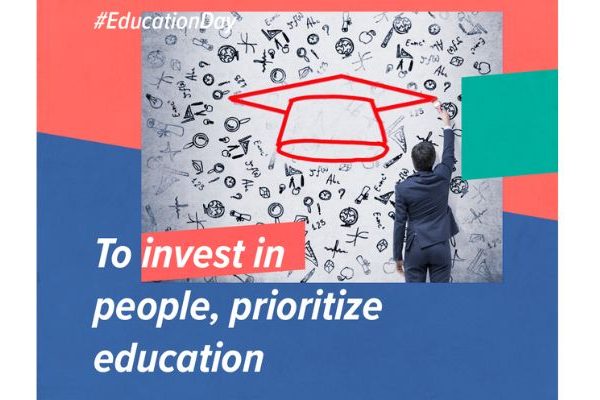On 24th January 2023 – International Day of Education, we raise awareness and mobilise efforts to support access to and participation in education worldwide.

Acknowledging and tackling structural barriers, reducing exclusion and working towards joint global human rights-based solutions are important. As part of our work on inclusion and diversity, CHARM-EU joins to raise awareness of this International Day, reiterating our commitment to providing welcoming, inclusive teaching and learning spaces and appropriate support for our students and community. The Day provides an opportunity for all stakeholders to talk about their work and what more needs to be done to make education a reality for people worldwide.
The crucial role of education
Education is a human right and the greatest tool to improve one’s life. Education offers a ladder out of poverty and a path to a bright future. The United Nations General Assembly proclaimed 24 January as the International Day of Education in celebration of the role of education. It reflected on the importance of learning for peace and development. The Day strengthens and encourages individuals, civil society, and governments to take concrete steps towards making education accessible to everyone.
Thematic focus in 2023
The thematic focus in 2023 is “to invest in people, priorities education”. Education must be prioritised to quicken progress towards all the Sustainable Development Goals against the backdrop of a global recession, growing inequalities and the climate crisis. Building on the global momentum generated by the UN Transforming Education Summit in September 2022, this year’s Day will call for strong political mobilisation around education and how commitments and global initiatives can be translated into action. The Summit resulted in national commitments from 133 countries to recover learning losses from the covid pandemic and transform their education to be more inclusive, relevant, and resilient to possible future shocks. According to UNESCO’s data, around 244 million children and youth are out of school, and 771 million adults are illiterate. The situation is worse for communities at risk of exclusion, such as people living in regions with higher inequality. The challenges of education vary from country to country. Still, some common structural barriers, discrimination, and lack of resources hinder access and participation of many individuals with various backgrounds, lived experiences, and access needs.
CHARM-EU’s commitment to inclusive education
In CHARM-EU, we recognise that all stakeholders must engage step by step to realise the design, implementation and monitoring of inclusive and quality education. We acknowledge that various structural barriers, including stigma and discrimination, remain a huge obstacle to social inclusion and access to education. Throughout the work of the CHARM-EU Diversity, Equity, and Inclusion Office, alongside relevant units within the CHARM-EU universities, we are committed to enhancing inclusive curricula design and teaching and learning environment for everyone.
Joins us to raise awareness by using the hashtag #EducationDay on social media. Find more information by visiting the following link: International Day of Education | United Nations & International Day of Education | UNESCO
References:
United Nations International Day of Education 24 January official website: International Day of Education | United Nations
UNESCO International Days International Day of Education 24 January official website: International Day of Education | UNESCO
Credit:
This contribution was prepared in collaboration with Enikő Bíró, a student volunteer (ELTE BGGYK) & CHARM-EU colleagues.